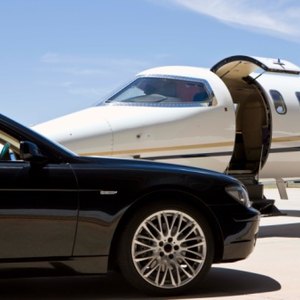
A luxury car tax is an amount that is owed to the government for when you purchase a vehicle over a certain dollar amount. The luxury tax that existed in the United States from 1990 to 2002 applied to vehicles over $30,000. Other countries such as Australia charge consumers a 33 percent luxury tax on vehicles that cost more than $57,180. Luxury taxes generally do not apply to the entire price of the vehicle, rather the tax typically only applies to difference between the total cost of the car and the tax threshold amount.
Determine the luxury car tax threshold that applies in your county or state. The tax threshold is the minimum amount that activates the tax. You can get this information by contacting the revenue department or taxing authority that governs your location.
Determine the tax percentage or rate that applies to vehicles that cost more that the luxury tax threshold. This information can also be obtained from the taxing authority for your location.
Subtract the total cost of your vehicle purchase from the luxury tax threshold. In most instances, this difference will be the amount that is subject to the luxury tax. If your country of state imposes a flat rate tax on the entire value of the luxury vehicle, you can skip this equation.
Calculate the amount of tax that is due on your luxury car purchase. Multiply the applicable tax rate by the total amount that is subject to the luxury vehicle tax. The product is the total amount of tax that is due on your vehicle purchase.
References
- Autos.com: Understanding the Luxury Car Tax and Why the Rate Is Different?
- Living In Australia: Buying a Car In Australia-What You Need to Know
- Australian Government Office of Taxation: Luxury Car Tax
- Christie's International Real Estate. "Luxury Defined 2018." Accessed April 15, 2020.
- Federal Housing Finance Agency. "FHFA Announces Maximum Conforming Loan Limits for 2020." Accessed April 16, 2020.
Writer Bio
Krystal Wascher has been writing online content since 2008. She received her Bachelor of Arts in political science and philosophy from Thiel College and a Juris Doctor from Duquesne University School of Law. She was admitted to the Pennsylvania Bar in 2009.

